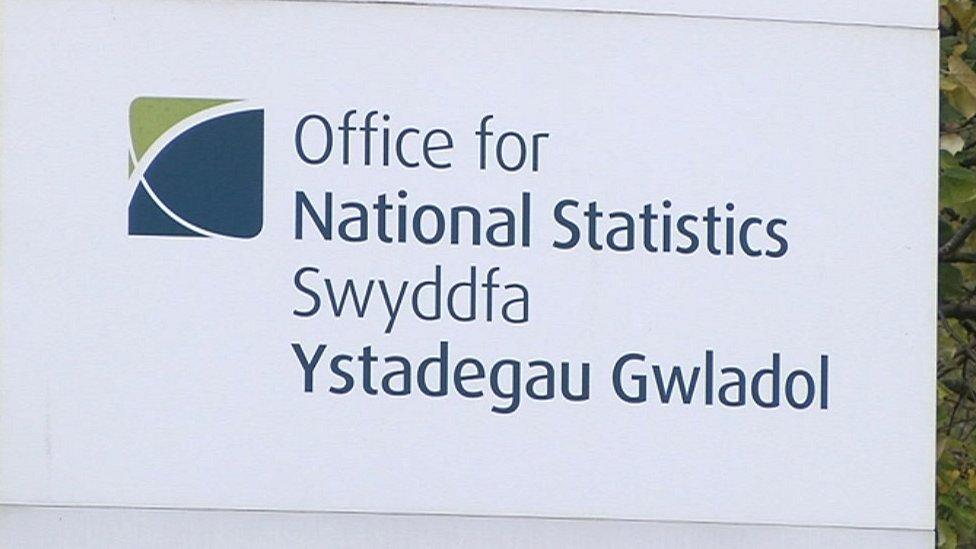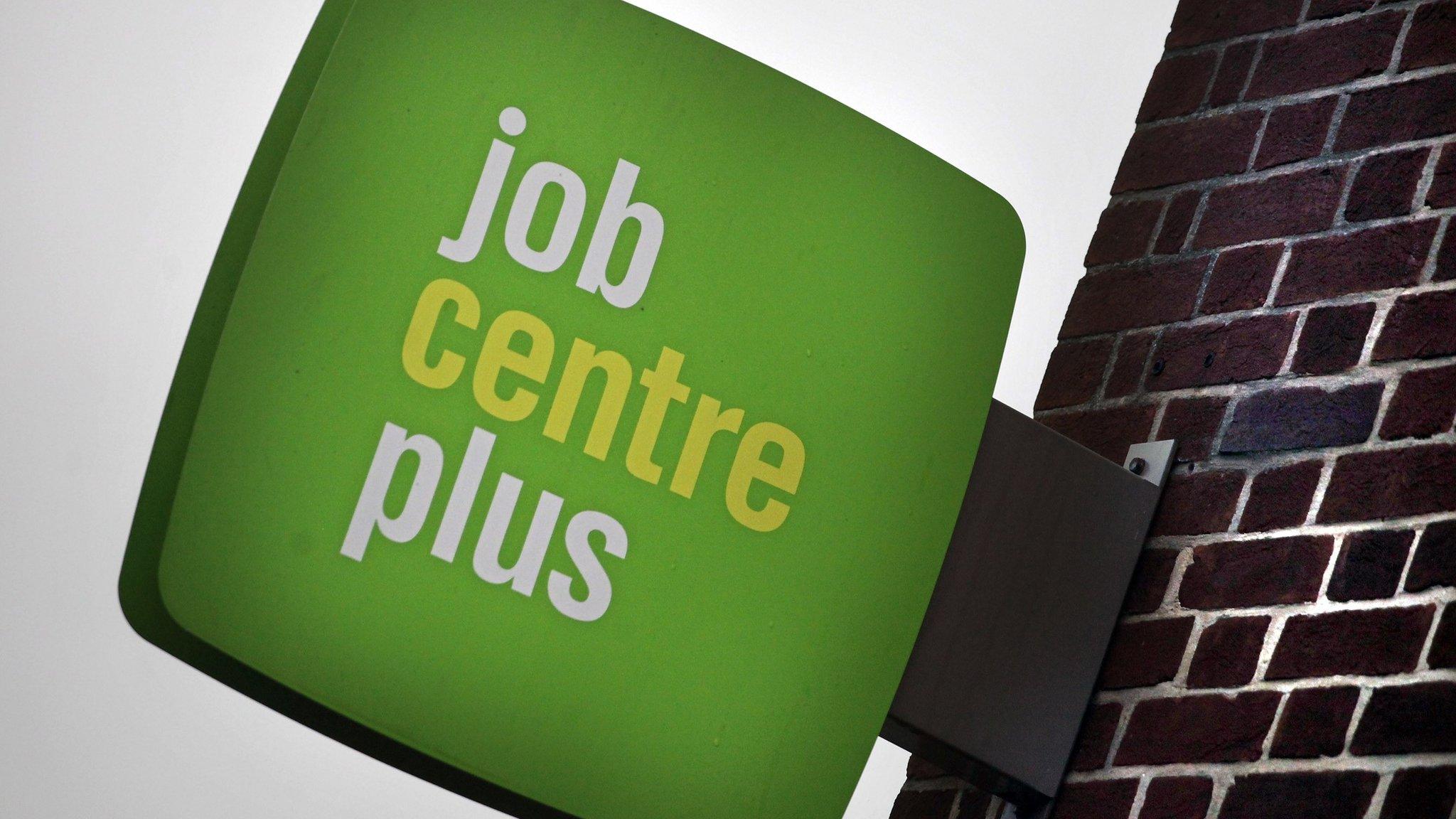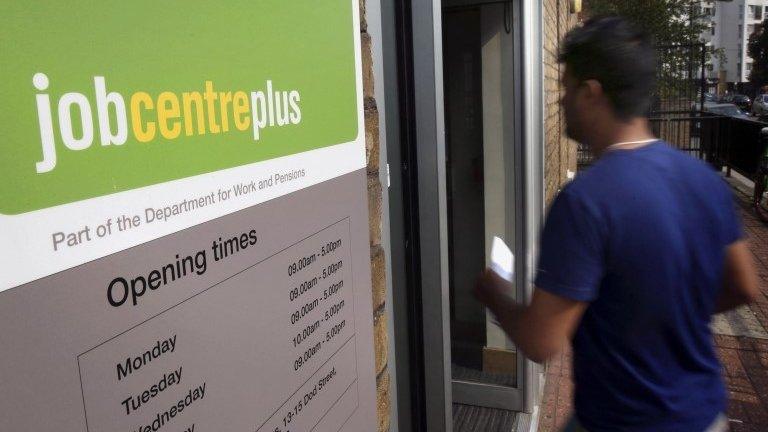Leaving London was bad for UK statistics, review says
- Published

An independent review of UK economic statistics has said moving the Office for National Statistics (ONS) out of London has made its output worse over the last decade.
The interim report, external by former Bank of England deputy governor Sir Charlie Bean said the ONS should have more staff in London to engage with users.
It also says that a cultural change is needed that will make the ONS better able to cope with a changing economy.
It wants more curious and agile staff.
The ONS moved its statistical functions out of London in 2007, with most of them going to Newport.
About 90% of London-based staff chose to leave ONS rather than relocate.
"It is the judgement of this review that the loss of statistical expertise which resulted from the relocation decision has had a significant - though not necessarily permanent - detrimental effect on the capability of ONS and the quality of its outputs over the past decade," the interim report said.
It added that there was now no point in reversing the decision, because that would lead to the loss of staff who do not want to move to London.
In response to the report, the ONS director general for economic statistics, Jonathan Athow, said: "ONS plans to develop the long-term capacity of the Newport office, working with others in the region to create a hub for data professionals, building on its role as the home of economic statistics.
"ONS will also strengthen its London presence to increase its analytical capability and engagement with key users."
'It's nonsensical'
The review also called for the ONS to be given better access to government data so that it no longer has to rely so much on surveys.
At the moment, the ONS gets some access to VAT data, pay as you earn (PAYE) tax data and export duty figures for specific purposes. The review says getting full access would make early estimates of economic growth more reliable, for example.
"It's nonsensical that different bits of the government don't speak to each other, so that businesses and households have to provide the same information twice," Sir Charlie said.
"Unlocking the data hoard already held by the public sector will not only save businesses money, but also produce more timely and accurate statistics."
A spokesperson for the Cabinet Office said: "The government agrees with the comments of the Bean review that better use of data is essential for modern government.
"We're looking at all options for how to improve data sharing, including through legislation."
Sir Charlie said that the legislative framework was currently part of the problem, requiring the department that holds the data to be willing to provide it and then needing an order to be put before Parliament.
"It would be better if we started from the assumption that the ONS is given access to all data unless there is a good reason not to," he said.
The ONS sent out more than one-and-a-half million survey forms in 2014, the review said, which takes up a quarter of ONS resources.
"Given the ubiquity of electronic data today, it is incongruous that the production of ONS economic statistics still relies so heavily on the posting of paper forms and knocking on doors," the review said.
The ONS is already experimenting with online forms for surveys and using data from supermarket websites to calculate the inflation figures.
"They've dipped their toes in the water and I want them to jump in up to their necks and swim," Sir Charlie told BBC News.
Declining funding
The review was highly critical of the ONS's use of technology, saying that it uses "hundreds of applications, on 25 different platforms. Many of these are outdated or bespoke and costly to maintain.
"The complexity of ONS systems has probably also been a contributory factor to some of the recent statistical errors and corrections."
Wednesday's release is the interim report of the review. The final report is due out in time for next year's Budget on 16 March.
Clearly, many of the recommendations in the report will require considerable extra funding, and HM Treasury has declined to make a detailed response until the full report is out.
The review notes that the funding of the ONS has fluctuated considerably, although the broad trend since 2009 had been a steady decline.
"There has been a rollercoaster in the provision of resources... that's obviously not helpful," Sir Charlie said.
"It is important to take longer term strategic views about which areas are important."
The review gives examples of times when initiatives recommended by previous reviews have been stopped because of shortages of funding.
- Published28 November 2015

- Published14 October 2015

- Published5 August 2015

- Published30 July 2015

- Published20 June 2015

- Published29 April 2014
